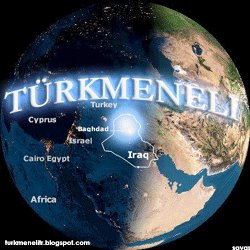
As violence in Iraq continues, the United States officially proclaims it will not intervene, writes Nermeen Al-Mufti
Saadeddin Arkej, chairman of the Turkoman Front and member of the elected parliament, is concerned over the political wrangling. "The Kurds have made it clear that they don't want Ibrahim Al-Jaafari because of his position on Kirkuk. Al-Jaafari, for his part, is refusing to discuss Kirkuk until the government takes office."
The Turkomans, Iraq's third largest ethnic group, are afraid the Kurds will end up controlling Kirkuk. In a recent meeting of the Kurdistan parliament in Irbil, Turkoman parliamentarians enquired about the fate of Turkoman detainees in northern prisons. Adnan Al-Mufi, who is the Kurdistan parliamentary speaker, was rather blunt in his reply. Local authorities, he said, simply implement US orders.
Ali Hashem, leader of the Turkoman Front in Salaheddin, describes what happened following the recent murder of a Kurdish National Guard officer in Yankeja, a Turkoman village 75 kilometres south of Kirkuk. In retaliation, a National Guard unit attacked the village, destroying a power station and several water tanks. In the course of two days of collective punishment, two inhabitants were killed, 10 wounded, and dozens of houses, shops and cars wrecked. "The punishment lasted till Sunday, ending only after we got in touch with US forces and the command of the National Guard in Kirkuk."
The inhabitants of Kirkuk and other dominantly Turkoman towns were relieved to know that Al-Sadr followers said they would defend the Arab identity of Kirkuk at any cost, even if they had to "bring all the mujahideen of the Mahdi army to the city."


